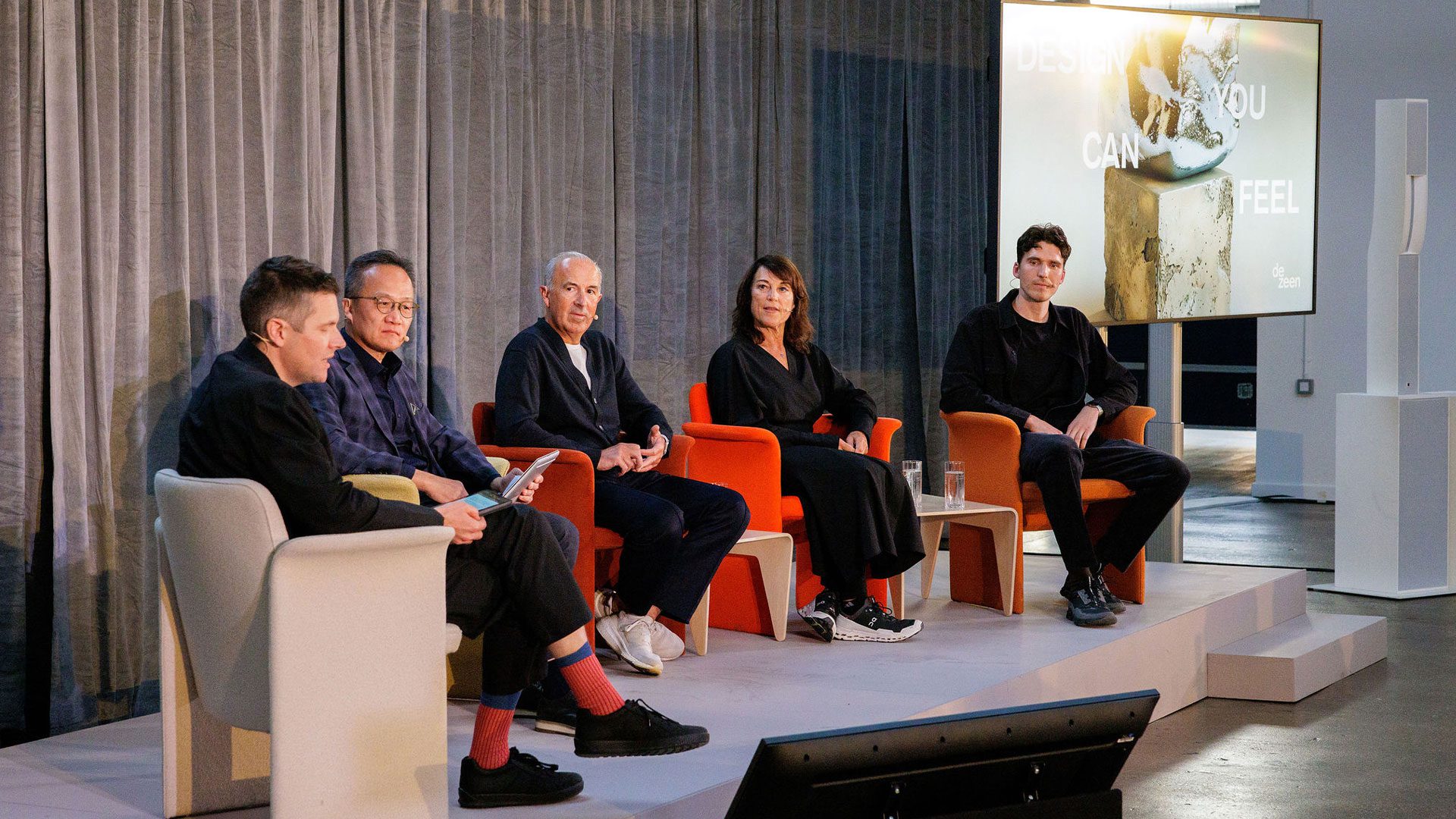Thoughtful material choices in technology can enhance digital experiences by making them more intuitive, tactile and less intrusive, says Future Facility during a talk hosted by Dezeen and ASUS.
Titled Technological Tactility: Creating Design You Can Feel, the talk took place in Shoreditch at ASUS and Dezeen’s Design You Can Feel exhibition during London Design Festival.
The discussion explored the intersections of digital technology, design and materiality, focusing on how people use powerful tools like artificial intelligence (AI) to enhance productivity and generate ideas that that stir the senses and resonate with people on an emotional level.
Hosted by Dezeen’s editorial director Max Fraser, the panel featured ASUS chief design officer Mitch Yang along with London studio Future Facility, the research arm of Industrial Facility led by Kim Colin, Sam Hecht and Leo Leitner.
Future Facility spoke about the design and development process behind its conceptual AI device named SUSA, which was specially commissioned for the Design You Can Feel exhibition.
The device performs many of the functions of a smartphone, tablet or portable computer, but intentionally limits intrusive entertainment and social media.
The screen is concealed behind a tactile, perforated surface made from ASUS’s proprietary material called Ceraluminum – originally developed for its Zenbook laptops – combining the lightness of aluminium with the durability of ceramics.
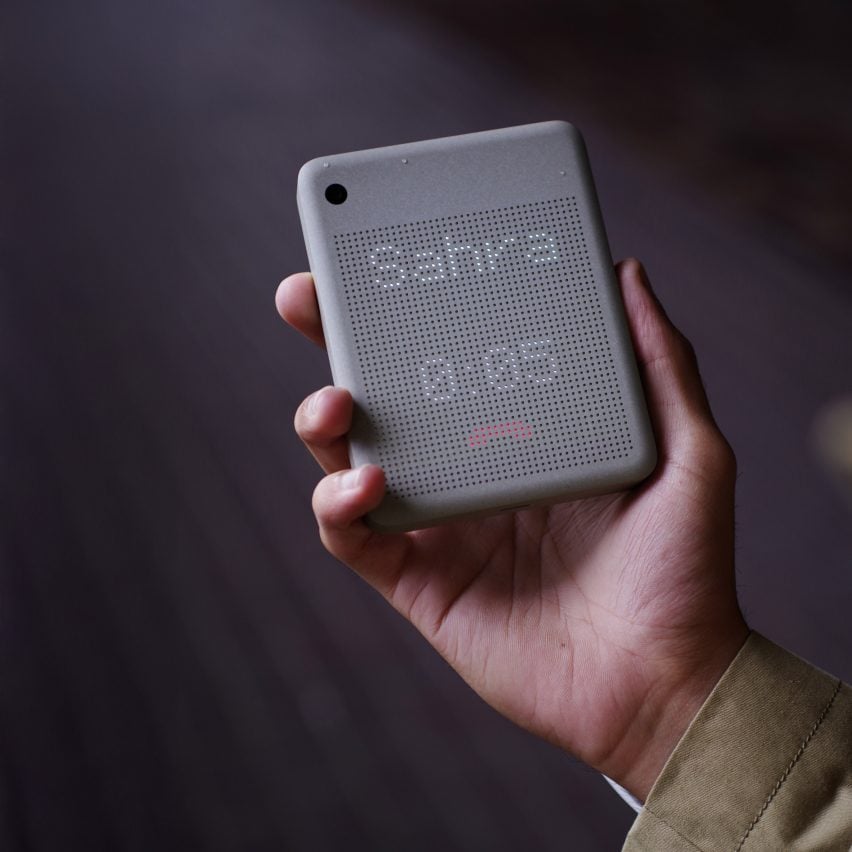
The designers shared their insights on working with Ceraluminum and how its unique properties and physical characteristics contributed to creating a more calming and trustworthy user experience.
“We were really interested in this tension between artificial and natural,” Leitner said.
“We realised the more artificial our devices and their software capabilities become, the more natural their embodiment has to be,” he continued. “And that’s where Ceraluminum gave us a great opportunity.”
The panel’s emphasis on natural embodiment underscored how Ceraluminum’s qualities enhance user perception and trust.
Expanding on this, the designers discussed how the material’s inherent qualities not only foster user trust but also enhances the overall experience and make it feel more inviting and tactile.
Ceraluminum does go towards trust building,” Hecht said. “It feels more ethereal, more primordial, rather than something that is plated, or that has lots of lines and grooves.”
“The touch is very different than scrolling across a glossy glass surface,” Colin added. “There’s something more comfortable about it.”
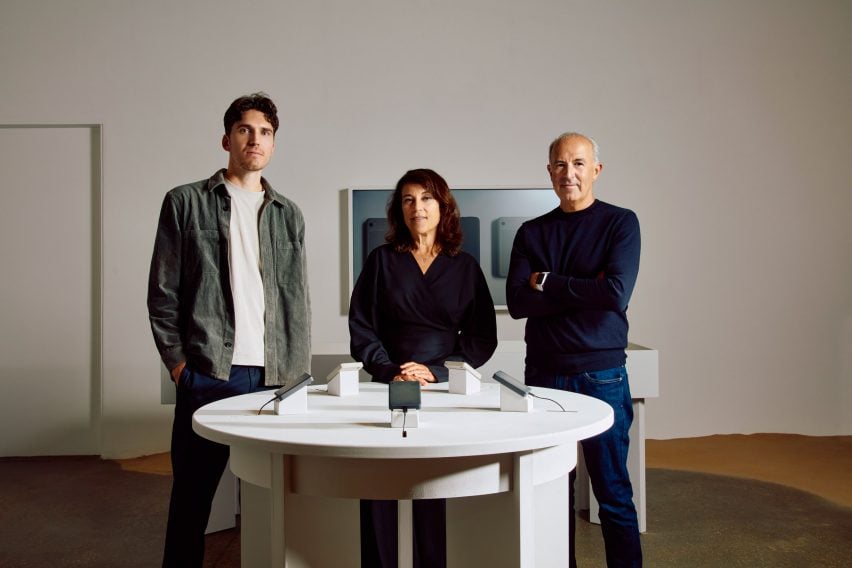
Colin spoke about a shift in design philosophy that values warmth and user connection over traditional notions of high-tech sophistication.
“We were intrigued by having something that’s so matte that takes all the light and kind of dampens it, when all imagery that we’re used to is so shiny and backlit,” Colin said.
“The experiment became: how would a handheld device feel coated in this surface [Ceraluminum], which is warmer and more friendly? It took away the kind of space race or the high-res space that all technologies are in.
The panel also discussed how designers could tackle the addictive and alienating nature of current smartphone technology, recognising that it is an increasing concern in today’s digital landscape.
“There’s psychological effects of that which are starting to be more consciously known,” Colin said.
“We’ve talked in the studio for a long time about how might we exercise control? Is it through software? And this project was perfect to say, well, could we do it through hardware,” she continued.
Building on this, Hecht continued to emphasise the importance of trust in technology design, suggesting that rebuilding user confidence can help address the challenges posed by addictive devices.
“Essentially, what we’re trying to do is to design things where you trust them. Technology suffers from that in magnitudes,” added Hecht.
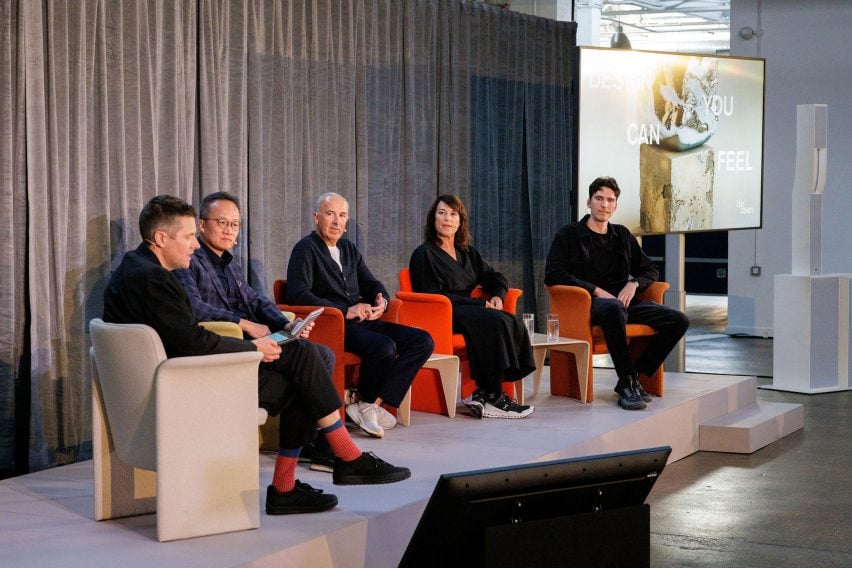
Leitner highlighted the principles guiding the design of SUSA, which stand in contrast to current technology trends.
“It sounds counterintuitive for a lot of tech brands, but it’s actually making your experiences a little bit less immersive,” he explained.
Leitner elaborated on how specific design elements can create distance between users and their experiences, encouraging engagement with physical surroundings, particularly in an era where devices often dominate attention, to foster a balance between technology and real-life experiences.
“It’s really about being aware of what part is alienating,” he said. “I’m a kid of the early 90s, so we had the first devices, but everything was a lot less immersive.”
“If something in the real world happened that was more interesting, that phone was put to the side. And I think that’s something we need to get back to – and that’s we tried with this device.”
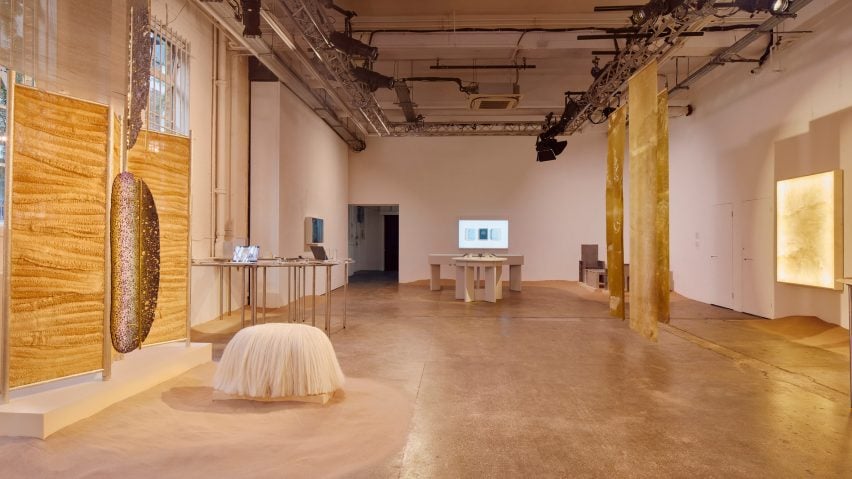
Future Facility’s SUSA device was presented alongside works by other leading designers including Fernando Laposse, Giles Miller, Natural Material Studio and Studio Furthermore, who presented work that speaks to the distinct qualities of Ceraluminum.
In addition to SUSA, the exhibition featured an aluminium lounge chair by Seoul-based design studio Niceworkshop, which was also treated with the ceramisation process. These projects mark the first time Ceraluminum has been applied to objects other than the ASUS Zenbook.
Design You Can Feel took place from 17 to 22 September at Protein Studios in Shoreditch during London Design Festival. Find out more about the exhibition here: dezeen.com/designyoucanfeel.
Partnership content
This panel talk and video was produced as part of a partnership with ASUS Zenbook. Find out more about Dezeen partnership content here.

